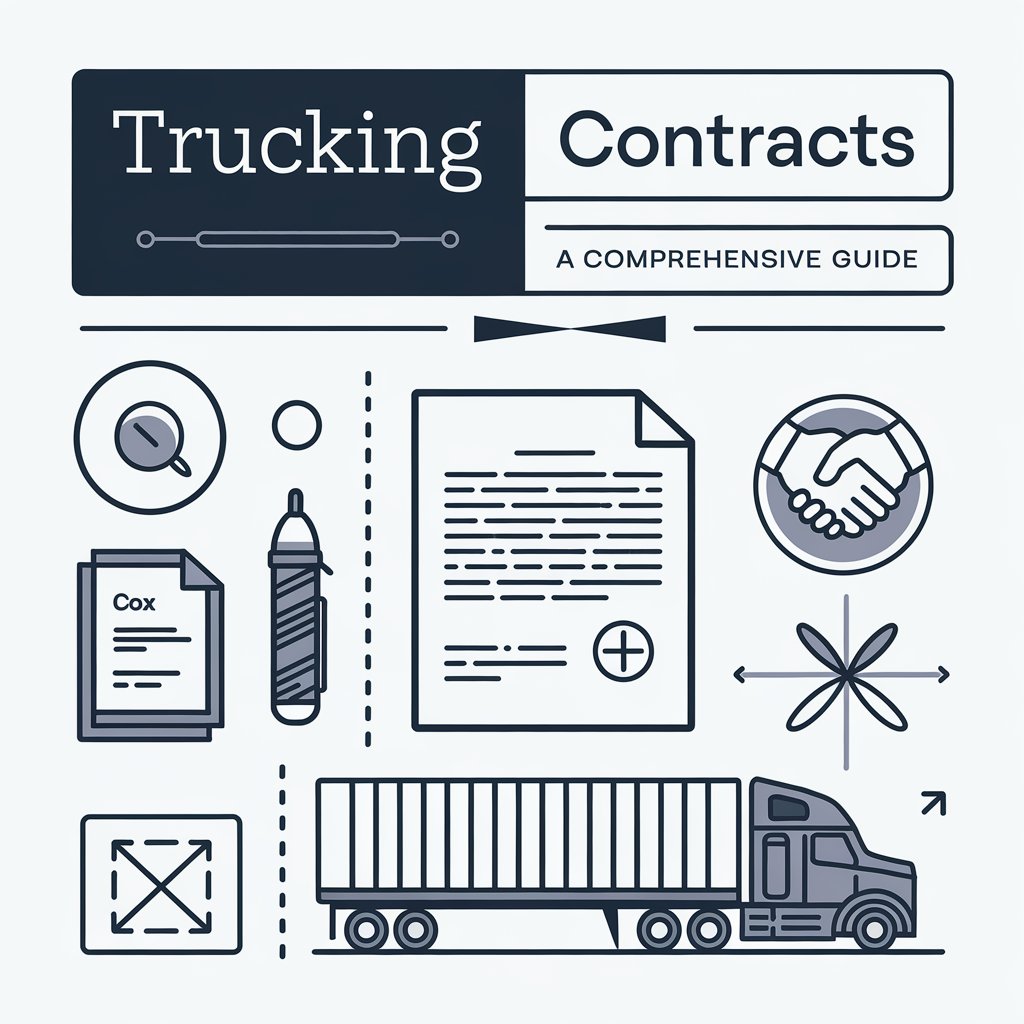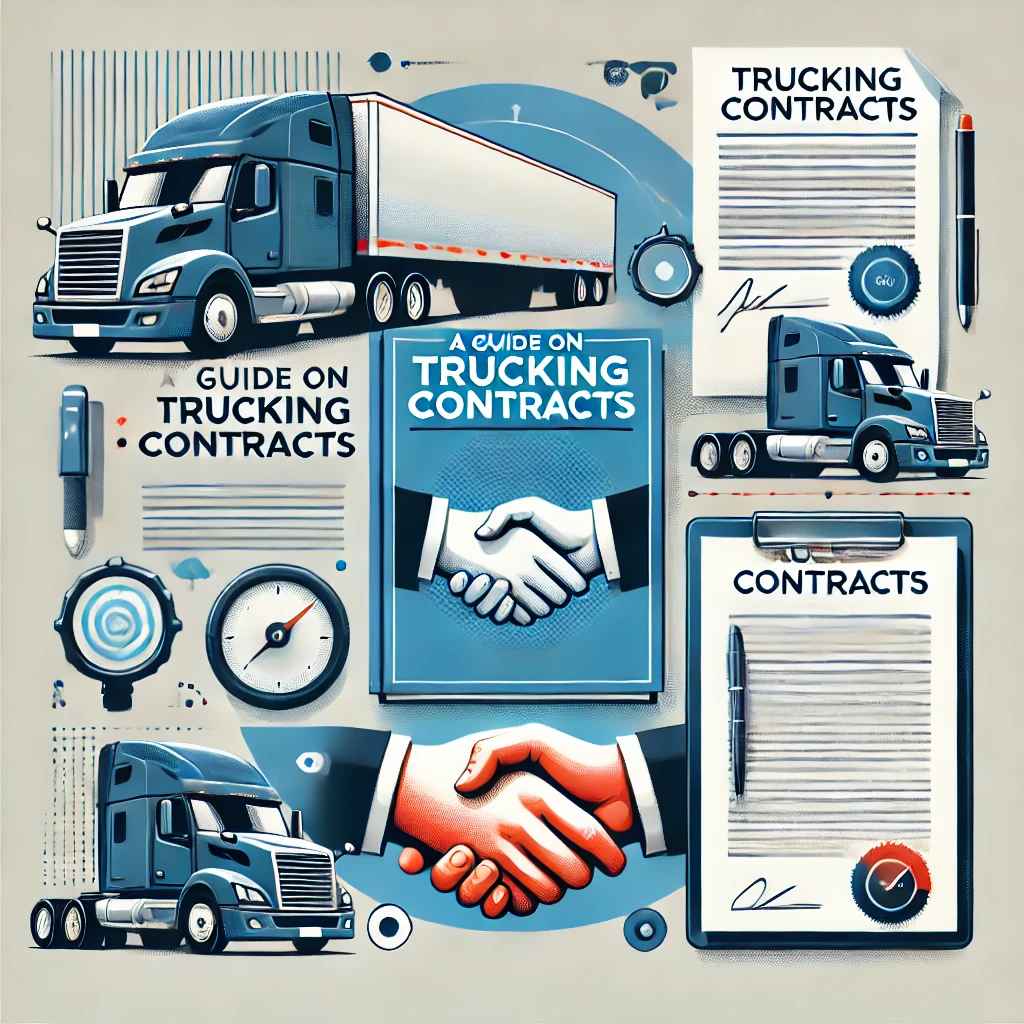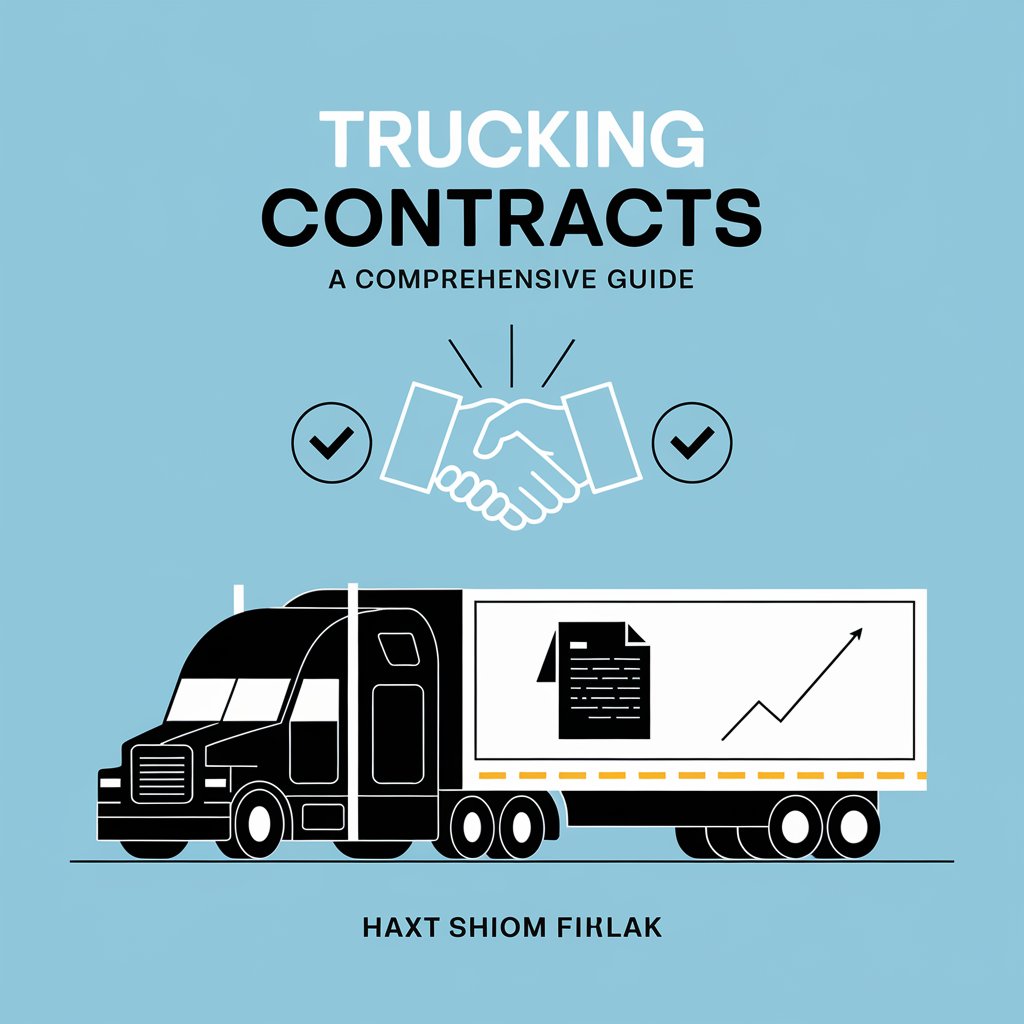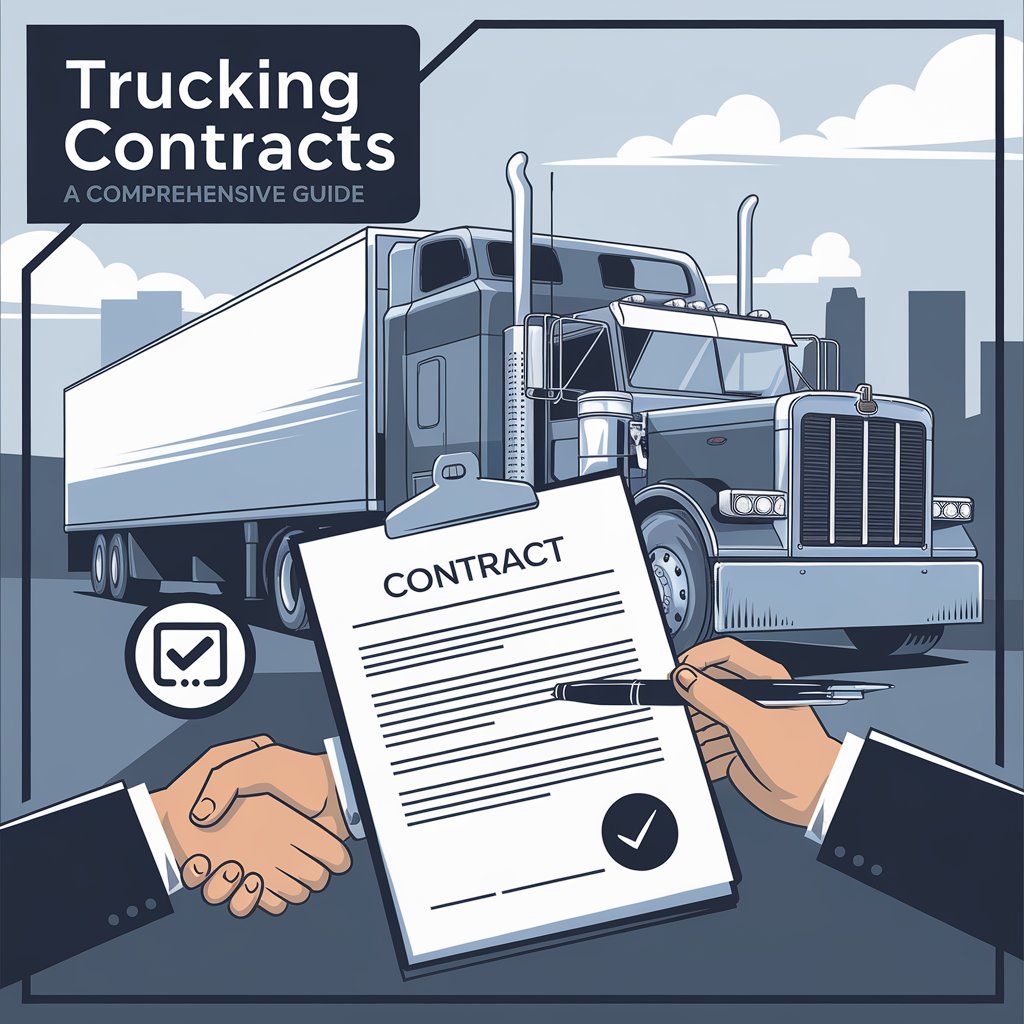Trucking Contracts: A Comprehensive Guide to Securing and Managing Transportation Agreements

Understanding Trucking Contracts
Trucking contracts are legally binding agreements between carriers (trucking companies or owner-operators) and shippers or brokers. These contracts outline the terms and conditions for transportation services, including:
- Scope of services
- Pricing and payment terms
- Performance expectations
- Insurance and liability requirements
- Duration of the agreement
- Termination clauses
Understanding these components is crucial for anyone looking to secure trucking contracts.
Types of Trucking Contracts
Before diving into how to get trucking contracts, it’s important to understand the different types available:
- Dedicated Contracts: Long-term agreements with specific shippers for regular routes.
- Spot Contracts: One-time or short-term agreements for individual shipments.
- Government Contracts: Agreements with federal, state, or local government agencies.
- Owner-Operator Contracts: Agreements between trucking companies and independent contractors.
- Intermodal Contracts: Involve multiple modes of transportation, including trucking.
Each type has its own advantages and challenges, and carriers often diversify their contract portfolio for stability and growth.
How to Get Trucking Contracts
Securing trucking contracts requires a strategic approach and persistent effort. Here are key steps to help you get started:
- Build a Strong Reputation: Establish a track record of reliability, safety, and excellent service.
- Network Actively: Attend industry events, join associations, and build relationships with potential clients.
- Leverage Online Platforms: Use load boards, freight marketplaces, and industry-specific websites to find contract opportunities.
- Develop a Marketing Strategy: Create a professional website, use social media, and consider targeted advertising.
- Understand Your Niche: Focus on specific types of cargo or routes where you excel.
- Prepare a Compelling Bid: When bidding on contracts, provide detailed information about your services, rates, and value proposition.
- Comply with Regulations: Ensure all necessary licenses, permits, and insurance are up to date.
- Offer Competitive Rates: Research market rates and offer competitive pricing without undervaluing your services.
- Provide Excellent Customer Service: Responsive communication and problem-solving skills can set you apart.
- Consider Working with Brokers: Freight brokers can help connect you with shippers and contracts.
How to Get Contracts for Transportation: Expanding Your Horizons

While trucking is a significant part of transportation contracts, expanding your service offerings can open up more opportunities. Consider these strategies:
- Diversify Your Fleet: Offer various types of trucks to handle different cargo needs.
- Explore Intermodal Options: Partner with rail or sea freight companies for intermodal contracts.
- Offer Value-Added Services: Provide warehousing, cross-docking, or last-mile delivery services.
- Develop Industry Expertise: Specialize in transporting goods for specific industries (e.g., pharmaceuticals, perishables).
- Embrace Technology: Implement advanced tracking and logistics management systems to appeal to tech-savvy clients.
.
Securing Government Trucking Contracts
Government trucking contracts can be lucrative but require a specific approach:
- Register with the System for Award Management (SAM): This is mandatory for federal contracts.
- Research Opportunities: Use resources like Beta.SAM.gov to find federal contract opportunities.
- Understand the Bidding Process: Each agency may have specific requirements and processes.
- Meet All Requirements: Ensure you meet all regulatory, insurance, and performance requirements.
- Consider Set-Aside Programs: Look into programs for small businesses, veteran-owned businesses, etc.
- Be Prepared for Paperwork: Government contracts often involve extensive documentation.
- Build Relationships: Network with government procurement officers and prime contractors.
- Start Small: Consider subcontracting to gain experience before bidding on prime contracts.

Owner-Operator Trucking Contracts: Navigating the Independent Path
For owner-operators, securing trucking contracts presents unique challenges and opportunities:
- Decide Between Direct Contracts and Leasing: Choose between working directly with shippers or leasing to a larger carrier.
- Understand Your Costs: Accurately calculate your operating costs to ensure profitable contracts.
- Build a Professional Image: Invest in a professional logo, business cards, and website.
- Network with Shippers and Brokers: Attend industry events and join online communities.
- Leverage Load Boards: Use load boards to find spot contracts and potentially long-term opportunities.
- Offer Specialized Services: Consider focusing on niche markets or specialized cargo.
- Maintain Excellent Performance Metrics: On-time delivery and safety records are crucial for securing contracts.
- Be Selective: Choose contracts that align with your business goals and operational capabilities.
Managing Trucking Contracts
Once you’ve secured trucking contracts, effective management is key to long-term success:
- Organize Contract Documentation: Keep all contracts and related documents well-organized and easily accessible.
- Monitor Performance Metrics: Track key performance indicators (KPIs) to ensure you’re meeting contract obligations.
- Maintain Open Communication: Keep lines of communication open with clients to address any issues promptly.
- Stay Compliant: Regularly review and update your compliance with regulations and contract terms.
- Manage Cash Flow: Understand payment terms and manage your cash flow accordingly.
- Review and Renegotiate: Periodically review contracts and be prepared to renegotiate terms as needed.
- Invest in Technology: Use contract management software to streamline processes and improve efficiency.
- Plan for Contingencies: Have backup plans for potential disruptions to maintain service continuity.

Trucking Contracts Available: Finding Opportunities
To find available trucking contracts:
- Use Online Marketplaces: Platforms like DAT, Truckstop.com, and RMIS offer contract opportunities.
- Check Industry Publications: Many trucking magazines and websites list contract opportunities.
- Network with Shippers: Build relationships with manufacturers, retailers, and other potential shippers.
- Attend Industry Trade Shows: These events are great for networking and finding new opportunities.
- Contact Freight Brokers: Brokers often have access to a wide range of contract opportunities.
- Join Industry Associations: Many associations provide resources and connections for finding contracts.
- Use Social Media: LinkedIn and industry-specific forums can be valuable sources of information.
- Check Government Websites: For government contracts, regularly check sites like Beta.SAM.gov.

Challenges in Trucking Contracts and How to Overcome Them
While trucking contracts offer many benefits, they also come with challenges:
- Rate Fluctuations: Stay informed about market trends and be prepared to renegotiate rates.
- Fuel Price Volatility: Consider fuel surcharge clauses in your contracts to protect against price spikes.
- Capacity Issues: Carefully manage your resources to avoid overcommitting.
- Regulatory Changes: Stay informed about industry regulations and adjust your operations accordingly.
- Technology Adoption: Invest in necessary technology to meet evolving client expectations.
- Driver Retention: Implement strategies to retain quality drivers, crucial for contract fulfillment.
- Contract Disputes: Have clear communication channels and dispute resolution processes in place.
Conclusion: Building a Sustainable Trucking Business Through Contracts
Trucking contracts are the lifeblood of a successful transportation business. By understanding how to secure, manage, and optimize these agreements, you can build a stable and profitable operation. Whether you’re an owner-operator looking for your first contract or a fleet manager seeking to expand your business, the strategies outlined in this guide can help you navigate the complex world of trucking contracts.
Remember, success in trucking contracts isn’t just about winning bids – it’s about building long-term relationships, delivering consistent quality service, and continuously adapting to the changing needs of the industry. With persistence, professionalism, and a commitment to excellence, you can establish a strong foundation of contracts that will drive your trucking business forward.
As the transportation industry continues to evolve, staying informed about new opportunities, technologies, and best practices will be crucial. Keep learning, stay flexible, and always be ready to seize new contract opportunities as they arise. With the right approach, your trucking business can thrive in this dynamic and essential industry.
